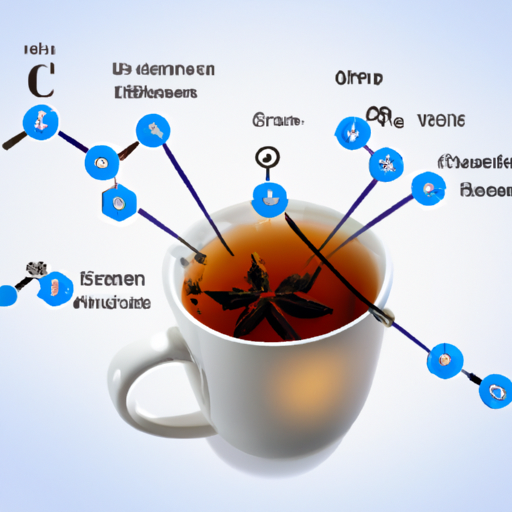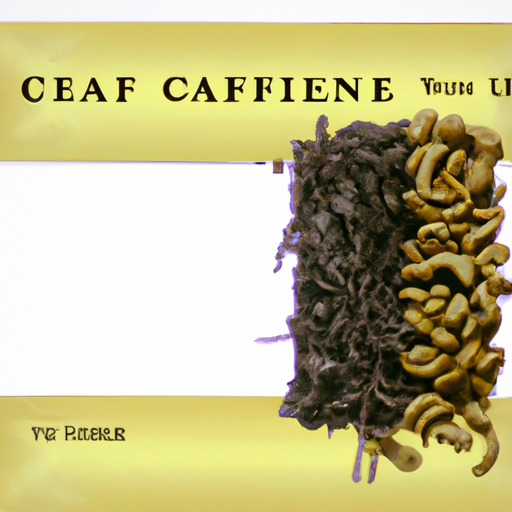As someone who enjoys hot drinks, the fragrant and spicy aroma of chai tea has always fascinated me. The complex mixture of its flavors has a unique way of taking me straight to a comforting cafe in India.
But beyond its delicious taste, what is chai tea good for? As it turns out, this popular beverage may offer some surprising health benefits.
Chai tea has a rich history dating back thousands of years to India, where it was traditionally consumed as part of Ayurvedic medicine. Today, it has become a beloved staple in coffee shops and kitchens around the world.
But what makes this tea so special? In this article, we’ll explore the key ingredients and potential health benefits of chai tea while also discussing how to make and enjoy this flavorful beverage.
So sit back with your favorite mug and let’s dive into the world of chai tea!
Key Takeaways
- Chai tea is a blend of spices and black tea that provides several health benefits, including anti-inflammatory properties, immune-boosting effects, and potential benefits for those with diabetes.
- The key ingredients in chai tea, such as ginger and cinnamon, have been shown to have positive effects on digestive health, inflammation, and pain relief.
- Chai tea can also have positive effects on mental health, reducing stress and promoting relaxation.
- Chai tea can be prepared by simmering black tea, warm spices, and milk together on the stove and can be paired with a variety of snacks for a delicious and comforting drink.
Brief History of Chai Tea
You may not know this, but chai tea has a fascinating history that you’ll want to hear about. The origins of chai tea can be traced back to India, where it was traditionally consumed as a spicy and sweet beverage made from black tea, milk, and spices such as cinnamon, cardamom, ginger, and cloves. In fact, the word ‘chai’ literally means ‘tea’ in Hindi.
Beyond its delicious taste and aroma, chai tea also holds cultural significance. It is an important part of Indian culture and is often served to guests as a sign of hospitality or friendship. Chai wallahs (street vendors) are common sights in many Indian cities and towns, selling cups of hot chai for just a few rupees.
Now that we understand the origins and cultural significance of chai tea, let’s move on to its key ingredients and their benefits.
Key Ingredients and Their Benefits
By incorporating a blend of flavorful spices such as cinnamon, cardamom, and ginger, your body can benefit from the anti-inflammatory properties found in these ingredients. Cinnamon, for example, is known to lower blood sugar levels and reduce inflammation. Ginger has been used for centuries to treat digestive issues and alleviate pain. These key ingredients not only add depth to chai tea’s flavor profile but also provide several potential health benefits.
In addition to cinnamon and ginger, other common chai tea ingredients include cloves, black pepper, and fennel seeds. Each of these spices offers unique benefits that contribute to overall health. For instance, cloves are rich in antioxidants while black pepper contains piperine which aids in nutrient absorption. Fennel seeds have been shown to improve digestion and alleviate bloating.
With so many delicious variations of chai tea available on the market today – from traditional Indian masala chai to pumpkin spice latte-inspired blends – there’s no shortage of options when it comes to enjoying this tasty beverage. Moreover, for those with diabetes or at risk for developing the condition, incorporating chai tea into their diet may be beneficial due to its potential ability to regulate blood sugar levels.
Whether you prefer your chai tea hot or iced, sweetened or unsweetened – one thing remains certain: by savoring this flavorful beverage you’re likely benefiting from a variety of potential health-promoting properties. From reducing inflammation and aiding digestion to regulating blood sugar levels – it’s clear that key ingredients like cinnamon and ginger play an integral role in making chai tea more than just a delicious drink.
Potential Health Benefits of Chai Tea
I’m excited to dive into the potential health benefits of chai tea.
From aiding in digestive health to providing anti-inflammatory properties and antioxidant benefits, there are a variety of reasons why chai tea is worth considering as a part of your daily routine.
Additionally, chai tea has been known to boost the immune system and provide mental health benefits, making it an all-around excellent choice for those looking to improve their overall well-being.
Digestive Health
Sip on a warm cup of chai tea to help alleviate digestive discomfort and promote a healthy gut. Chai tea contains several ingredients that are known for their digestive benefits, including ginger, cinnamon, and cloves. Here are four ways that chai tea can improve your digestive health:
-
Relieves nausea: Ginger, one of the main ingredients in chai tea, has been shown to be effective in reducing nausea and vomiting.
-
Reduces inflammation: Cinnamon is known for its anti-inflammatory properties, which can help reduce inflammation in the gut and ease symptoms of inflammatory bowel disease.
-
Improves digestion: Cloves have been traditionally used as an herbal remedy for digestive issues like bloating, gas, and indigestion.
-
Promotes gut health: Black tea, another key ingredient in chai tea, contains compounds called polyphenols that can improve the balance of good bacteria in your gut and support overall digestive health.
Now that we’ve discussed how chai tea can benefit your digestive health, let’s move on to its anti-inflammatory properties.
Anti-Inflammatory Properties
Indulging in a warm cup of spiced goodness like chai tea can help ease inflammation in the body due to the anti-inflammatory properties found in its ingredients. Chai tea contains several spices, such as ginger, cinnamon, and cloves, that have been studied for their potential benefits on reducing inflammation. In fact, studies have shown that ginger can be effective in reducing pain and stiffness associated with osteoarthritis and rheumatoid arthritis. Additionally, cinnamon has been found to reduce markers of inflammation in the body and may be beneficial for heart health.
To further understand how chai tea can benefit our health, let’s take a closer look at some research findings related to its anti-inflammatory properties. The table below summarizes some of the potential benefits of chai tea:
| Potential Benefits | Evidence |
|---|---|
| Reduce inflammation | Studies have shown that ginger and cinnamon may help reduce markers of inflammation in the body |
| Improved arthritis symptoms | Ginger has been found to reduce pain and stiffness associated with osteoarthritis and rheumatoid arthritis |
| Better heart health | Cinnamon may help improve blood sugar control and reduce risk factors for heart disease |
As we move into discussing antioxidant benefits next, it’s important to note that many of these potential benefits are interconnected. Antioxidants work together with anti-inflammatory compounds to protect our cells from damage caused by free radicals.
Antioxidant Benefits
Just like a superhero protecting its city from destruction, antioxidants found in chai tea work tirelessly to protect your cells from damage caused by free radicals. Free radicals are unstable molecules that can cause harm to your body when they accumulate. They’re produced naturally during metabolism and can also be generated by external sources such as pollution, radiation, and cigarette smoke.
Antioxidants neutralize these harmful molecules by donating an electron, thus preventing them from causing further damage to your cells. Drinking chai tea regularly can increase the levels of antioxidants in your body, leading to a healthier immune system and reduced risk of chronic diseases.
There are many recipes and variations of chai tea available today. Some people prefer the traditional Indian recipe which includes black tea leaves, milk, spices such as cinnamon, cardamom, cloves, ginger and sometimes even pepper. Others may opt for a caffeine-free version using herbal teas such as rooibos or chamomile instead of black tea leaves.
Regardless of the recipe or variation you choose to make at home or order at a cafe, rest assured that you’ll be benefiting from the antioxidant properties found in chai tea. In the next section, we’ll explore how drinking chai tea can boost your immune system and potentially improve overall health outcomes.
Immune System Boosting
By incorporating chai tea into your daily routine, you can potentially boost your immune system and defend against harmful pathogens. Chai tea is made up of a blend of herbs and spices that have been used for centuries in traditional medicine to treat various ailments. These ingredients contain antioxidants and anti-inflammatory properties that help protect the body from damage caused by free radicals.
One of the key ingredients in chai tea is ginger, which has been shown to have powerful immune-boosting properties. It helps stimulate white blood cells, which are responsible for fighting off infections and diseases. Drinking chai tea regularly can also be particularly beneficial during seasonal variations such as winter when colds and flu are more prevalent, but can still provide immune support in other seasons as well. So, if you’re looking for a natural way to strengthen your immunity, consider adding a cup of chai tea to your daily routine.
With its ability to potentially boost immunity, it’s no surprise that chai tea has become increasingly popular among health enthusiasts. However, its benefits don’t just stop there – studies have also shown that the herbs and spices in chai tea may have positive effects on mental health as well.
Let’s explore this further in the next section about ‘mental health benefits’.
Mental Health Benefits
You’ll be pleasantly surprised to know that sipping on a warm cup of chai can do wonders for your mental well-being, lifting your mood and giving you a soothing sense of comfort.
Here are some ways that chai tea can benefit your mental health:
-
Reduces stress: Chai tea contains adaptogenic herbs like ashwagandha and holy basil that help the body cope with stress. These herbs have been shown to reduce cortisol levels, which is the hormone responsible for stress.
-
Boosts cognitive function: The caffeine in chai tea helps improve focus and concentration. Additionally, studies show that cinnamon, one of the key ingredients in chai spice blends, may improve cognitive function and memory.
-
Promotes relaxation: Chai tea contains spices like cardamom and ginger which have natural calming properties. Drinking a warm cup of chai before bed can help promote relaxation and better sleep quality.
-
Self care tip: Taking a few moments each day to enjoy a warm cup of chai can be a simple yet effective self-care practice to help manage stress and anxiety levels.
Now that we know how beneficial chai tea can be for our mental health, let’s move on to learning how to make this delicious beverage at home without breaking the bank or compromising any flavors!
How to Make Chai Tea
To make a delicious cup of chai tea, start by simmering black tea, spices like cinnamon and cloves, and milk together on the stove until fragrant and creamy.
There are many variations of chai, but most recipes call for black tea as the base ingredient along with warm spices like cardamom, ginger, and nutmeg. Some recipes also use sweeteners like honey or sugar to balance out the flavors.
When it comes to selecting the best tea brands for chai, it’s important to choose a strong black tea that can hold up against the bold flavors of the other ingredients. Assam, Darjeeling, or Ceylon teas are popular choices for making chai because they have a robust flavor that stands up well to the milk and spices. You can also experiment with different types of milk such as almond or coconut milk if you prefer a non-dairy option.
Once your chai is ready, there are many tips for enjoying this delicious beverage. Some people like to add a dollop of whipped cream on top or sprinkle some cinnamon on top for an extra touch of sweetness. Others enjoy their chai with a biscuit or piece of cake on the side.
No matter how you choose to enjoy it, one thing’s certain: chai tea is not only delicious but also offers several health benefits that make it worth adding to your daily routine.
Tips for Enjoying Chai Tea
Indulging in a warm cup of spiced chai can be made even more enjoyable by pairing it with your favorite sweet treat. Adding natural sweeteners like honey, agave or maple syrup instead of processed sugar is a great way to enhance the flavors of your chai tea without adding unnecessary calories. You can also try adding a splash of almond milk or coconut cream for a creamy texture that complements the spices in the tea.
When it comes to choosing snacks to pair with chai tea, there are many delicious options. Biscotti, ginger snaps, shortbread cookies and scones are all popular choices that go well with the rich flavors of chai tea. For those looking for something healthier, fresh fruit like apples or pears make a tasty and refreshing alternative.
In comparison to coffee, chai tea offers a unique blend of spices and caffeine that provides an energizing boost without the jitters often associated with coffee consumption. While coffee is often enjoyed black or with cream and sugar, chai tea has endless possibilities when it comes to flavor combinations. So why not switch things up and give chai tea a try next time you’re looking for an invigorating beverage?
Chai Tea vs. Coffee
If you’re seeking an alternative to coffee, considering the unique blend of spices and caffeine in chai tea could provide a refreshing change. Chai tea is made with a combination of black tea, cinnamon, cardamom, cloves, ginger, and black pepper. This creates a distinct flavor that is both spicy and sweet. Some people prefer the taste of chai over coffee because it offers a more complex flavor profile.
In addition to its taste, chai tea also has several health benefits when compared to coffee. Chai contains antioxidants from the black tea leaves and spices used in its preparation. These antioxidants can help reduce inflammation and may lower your risk for chronic diseases such as heart disease or cancer. Furthermore, studies have shown that consuming cinnamon can help regulate blood sugar levels which can be beneficial for those with diabetes.
Despite its cultural significance in countries like India where it originated as masala chai, chai tea has not yet achieved the same level of global popularity as coffee. However, some cafes and restaurants around the world now offer chai lattes or other variations on traditional recipes. If you’re looking for something different than your regular cup of joe but still want something energizing and flavorful, giving chai tea a try might be worth it.
Chai tea vs. coffee: taste preferences and potential health benefits are important factors to consider if you’re thinking about making the switch from one beverage to another. In our next section, we’ll explore whether drinking chai can aid weight loss efforts without sacrificing flavor or nutrition.
Chai Tea and Weight Loss
Like shedding excess weight’s a piece of cake, incorporating chai tea into your diet may help boost weight loss efforts.
Chai tea contains several ingredients that can aid in metabolism and hydration, both essential for weight loss. For instance, black tea, a main component of chai tea, has been shown to increase metabolism and fat oxidation.
Moreover, chai tea also contains spices such as cinnamon and ginger, linked to weight loss. Cinnamon regulates blood sugar levels and reduces insulin resistance, leading to decreased appetite and fewer cravings for sugary foods. Ginger suppresses appetite and increases calorie burning.
In addition to potential weight loss benefits, drinking chai tea can help with hydration. Made with water and often served hot or warm, it’s a great way to stay hydrated throughout the day without consuming sugary drinks or excessive amounts of caffeine. An excellent alternative for those cutting back on soda or coffee intake while still enjoying a flavorful beverage.
Transitioning to the subsequent section about ‘chai tea and pregnancy,’ note that while chai tea offers health benefits for non-pregnant individuals, pregnant women should exercise caution when consuming it due to its caffeine content.
Chai Tea and Pregnancy
During pregnancy, it’s important to be mindful of your caffeine intake, and one beverage that may require moderation is chai tea. While chai tea can be a delicious and comforting drink, it typically contains black tea as its base ingredient which contains caffeine.
Experts recommend that pregnant women limit their daily caffeine intake to 200 milligrams or less per day to reduce the risk of negative health outcomes for both the mother and baby. Pregnancy precautions extend beyond just avoiding alcohol and certain foods. Caffeine intake should also be monitored closely during pregnancy as too much caffeine consumption has been linked to complications such as miscarriage, preterm birth, low birth weight, and developmental delays in babies.
It’s worth noting that different types of chai tea may contain varying levels of caffeine depending on the amount of black tea used in the blend. If you’re a fan of chai tea but are concerned about its potential effects on your pregnancy, there are ways to enjoy it while still following recommended guidelines for caffeine intake. Consider opting for decaffeinated versions or reducing the number of cups consumed per day.
As always, it’s best to consult with your healthcare provider before making any changes to your diet during pregnancy. Transitioning into the subsequent section about ‘chai tea and caffeine’, it’s important to note that not all types of chai teas contain high amounts of caffeine. In fact, some blends may use herbal teas instead which do not contain any caffeine at all.
Understanding how much caffeine is present in each type of chai tea can help pregnant women make informed decisions about their beverage choices without having to give up their beloved cup of chai altogether.
Chai Tea and Caffeine
Caffeine content can vary widely in different types of chai blends, with some containing as much caffeine as a cup of coffee, while others have little to no caffeine, like a ship sailing through calm waters. It’s important to know the level of caffeine you’re consuming if you’re sensitive to it or trying to cut back on your intake.
Some people enjoy the boost they get from caffeine, but for others, it can lead to jitters and difficulty sleeping. Flavor profiles also play a role in the amount of caffeine in chai tea. Traditional masala chai incorporates black tea leaves and spices such as cinnamon, ginger, cardamom, and cloves. These spices can enhance the flavor profile without adding extra caffeine.
However, some modern variations include green tea or yerba mate which may contain higher levels of caffeine than traditional blends. If you’re looking for a low-caffeine option but still want the taste of chai tea, try using herbal alternatives like rooibos or chamomile instead of black tea leaves.
Additionally, some companies offer decaf versions of their chai blends that use water processing methods rather than chemicals to remove caffeine. Overall, understanding the level of caffeine in your chosen blend is key to enjoying all the benefits that chai tea has to offer without any unwanted side effects.
- Herbal alternatives such as rooibos and chamomile are great options for those who want to avoid high levels of caffeine.
- Traditional masala chai spices can enhance flavor without contributing extra caffeine.
- Decaf versions using water processing methods are available for those who want an authentic taste without excess amounts of stimulants.
Frequently Asked Questions
How many cups of chai tea can I consume in a day?
I’ve been wondering how many cups of chai tea I can safely consume in a day. From what I’ve gathered, there are both benefits and risks associated with drinking too much of this popular beverage.
On one hand, the spices used to make chai tea are known for their antioxidant properties and ability to reduce inflammation. Additionally, some studies have even suggested that consuming moderate amounts of black tea (which is often used as a base for chai) may lower the risk of heart disease.
However, it’s also important to note that chai tea typically contains caffeine, which can cause negative side effects such as jitteriness and insomnia if consumed in excess.
As for brewing techniques, it’s generally recommended to steep chai tea bags or loose leaf blends in hot water for 3-5 minutes before adding milk or sweeteners to taste.
Ultimately though, the number of cups you should drink per day will depend on factors such as your individual tolerance to caffeine and any underlying health conditions you may have – so it’s always best to consult with a healthcare professional if you’re unsure about how much chai tea is safe for you personally to consume each day.
Can I add honey or sugar to my chai tea?
When it comes to sweetening options for chai tea, there are two popular choices: honey or sugar. Personally, I prefer using honey as it adds a natural sweetness without overpowering the spices in the tea. However, some people may prefer sugar for a stronger and more traditional taste.
It’s important to note that adding too much sweetener can mask the complex flavors of chai tea, so it’s best to start with a small amount and adjust as needed. Additionally, steeping time plays a crucial role in achieving the perfect cup of chai tea. Generally, steeping for around 5-7 minutes allows all the spices to fully infuse into the water and results in a rich and flavorful brew.
Overall, whether you choose honey or sugar as your sweetener of choice and perfect your steeping technique, enjoying a cup of chai tea can be a comforting and delicious experience.
Can I drink chai tea if I am lactose intolerant?
As someone who’s lactose intolerant, I’ve found plenty of lactose-free alternatives for enjoying chai tea. Many brands offer non-dairy milk options like almond, soy, or oat milk, which can be used instead of traditional dairy milk.
Additionally, some chai blends don’t include any dairy at all. While many people enjoy the creamy texture that dairy adds to chai tea, it’s important to note that the health benefits associated with consuming chai tea aren’t limited to those who can tolerate lactose.
Chai tea is known for its anti-inflammatory properties and high levels of antioxidants, which can help improve digestion, boost immunity, and reduce stress levels among other things. Whether you opt for a lactose-free alternative or prefer your chai with dairy milk, the health benefits remain the same.
Is chai tea good for people with diabetes?
Oh, you know what’s great for managing diabetes? Drinking sugary chai tea! Just kidding, of course not.
But in all seriousness, understanding the benefits of chai tea for blood sugar control can be helpful. Chai tea is often made with spices like cinnamon and ginger which have been shown to improve insulin sensitivity and lower blood sugar levels.
However, it’s important to note that many commercial chai teas contain added sugars or sweeteners which can actually have the opposite effect on blood sugar.
So if you’re looking to incorporate chai tea into your diet as a diabetic, make sure to read labels carefully and opt for unsweetened varieties or even better – make your own at home with natural sweeteners like stevia or honey in moderation.
As always, consult with a healthcare professional before making any major dietary changes.
Can I store leftover chai tea in the fridge and reheat it later?
Yes, you can definitely store leftover chai tea in the fridge and reheat it later. To do so, simply transfer the remaining tea into a heat-resistant container with a lid and let it cool down to room temperature before placing it in the fridge.
When you’re ready to enjoy your chai again, take out the container from the fridge and reheat it on the stove or in the microwave until it reaches your desired temperature. However, keep in mind that reheating tea multiple times can affect its flavor and quality, so try not to keep it for too long or reheat it too many times.
Conclusion
As I finish my cup of chai tea, I can’t help but feel a sense of warmth and comfort. It’s not just the physical heat of the drink, but also the emotional connection it brings.
Chai tea has been a part of my life for as long as I can remember, and now that I know about its potential health benefits, it’s become even more special to me. Chai tea is like a hug in a cup – it soothes your soul while nourishing your body.
Its blend of spices not only adds flavor to the drink but also provides natural antioxidants and anti-inflammatory properties. Whether you’re looking for an alternative to coffee or simply want to try something new, chai tea is definitely worth exploring.
So go ahead and savor each sip of this delicious beverage – your mind and body will thank you for it.










